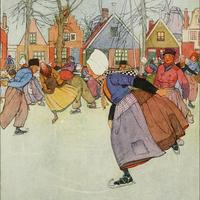Chapter 46. Mysterious Disappearance of Thomas Higgs
Higgs's factory was a mine of delight for the gossips of Birmingham. It was a small building but quite large enough to hold a mystery. Who the proprietor was, or where he came from none could tell. He looked like a gentleman, that was certain, though everybody knew he had risen from an apprenticeship, and he could handle his pen like a writing master.
Years ago he had suddenly appeared in the place a lad of eighteen, learned his trade faithfully, and risen in the confidence of his employer, been taken in as a partner soon after the time was up. Finally, when old Willett died, had assumed the business on his own hands. This was all that was known of his affairs.
It was a common remark among some of the good people that he never had a word to say to a Christian soul, while others declared that though he spoke beautifully when he chose to, there was something wrong in his accent. A tidy man, too, they called him, all but for having that scandalous green pond alongside of his factory, which wasn't deep enough for an eel and was "just a fever nest, as sure as you live." His nationality was a great puzzle. The English name spoke plain enough for one side of his house, but of what manner of nation was his mother? If she'd been an American, he'd certainly have had high cheekbones and reddish skin; if a German, he would have known the language, and Squire Smith declared that he didn't; if French (and his having that frog pond made it seem likely), it would come out in his speech. No, there was nothing he could be but Dutch. And, strangest of all, though the man always pricked up his ears when you talked of Holland, he didn't seem to know the first thing about the country when you put him to the point. Anyhow, as no letters ever came to him from his mother's family in Holland, and as nobody living had ever seen old Higgs, the family couldn't be anything much. Probably Thomas Higgs himself was no better than he should be, for all he pretended to carry himself so straight; and for their parts, the gossips declared, they were not going to trouble their heads about him. Consequently Thomas Higgs and his affairs were never-failing subjects of discussion.
Picture, then, the consternation among all the good people when it was announced by "somebody who was there and ought to know," that the postboy had that very morning handed Higgs a foreign-looking letter, and the man had "turned as white as the wall, rushed to his factory, talked a bit with one of the head workmen, and without bidding a creature good-bye, was off bag and baggage, before you could wink, ma'am." Mistress Scrubbs, his landlady, was in deep affliction. The dear soul became quite out of breath while speaking of him. "To leave lodgin's in that suddent way, without never so much as a day's warnin', which was what every woman who didn't wish to be trodden underfoot, which thank hevving wasn't her way, had a perfect right to expect; yes, and a week's warnin' now you mention it, and without even so much as sayin' 'Many thanks, Mistress Scrubbs, for all past kindnesses,' which was most numerous, though she said it who shouldn't say it; leastwise she wasn't never no kind of person to be lookin' for thanks every minnit. It was really scanderlous, though to be sure Mister 'iggs paid up everythin' to the last farthin' and it fairly brought tears to my eyes to see his dear empty boots lyin' there in the corner of his room, which alone showed trouble of mind for he always stood 'em up straight as solgers, though bein' half-soled twice they hadn't, of course, been worth takin' away." Whereupon her dearest friend, Miss Scrumpkins, ran home to tell all about it. And, as everybody knew the Scrumpkinses, a shining gossamer of news was soon woven from one end of the street to the other.
An investigating committee met that evening at Mrs. Snigham's--sitting in secret session over her best china. Though invited only to a quiet "tea," the amount of judicial business they transacted on the occasion was prodigious. The biscuits were actually cold before the committee had a chance to eat anything. There was so much to talk over, and it was so important that it should be firmly established that each member had always been "certain sure that something extraordinary would be happening to that man yet," that it was nearly eight o'clock before Mrs. Snigham gave anybody a second cup.

